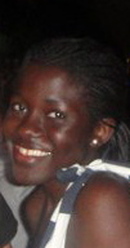scientific bench research, and also view the findings in the light of its implications on the welfare of epidemic-hit third world regions. Made possible by the Harvard Global Health Institute, this opportunity at the Fortune lab will add significantly to my understanding of molecular biology and international health policy, and compliment my academic studies as a Chemistry concentrator with a Global Health and Health Policy secondary field. Dr. Fortune’s laboratory, located at the Harvard School of Public Health, uses molecular biology lab techniques and new technologies to study biological problems involving Mycobacterium tuberculosis (Mtb). Areas of interest include genetic and epidemic variation, the ESX1 secretion system—an essential mechanism that allow pathogenic bacteria to take control of host cells in the body in order to replicate, and mutability of the bacterium and consequent multidrug resistance. My project for this summer deals with genetic and epidemic variation in Mtb. Because of laboratory safety restrictions for undergraduate students, I will be working with specifically with Mycobacterium smegmatis, a bacterial species that very closely resembles Mtb in behavior. In addition to lacking the airborne risk of Mtb, smeg is easier to work with in that it replicates about every 3 hours compared to the 24 hours needed for Mtb.
I will be transforming and growing bacteria with 100+ different types of promoters that require methylation to see whether there is heterogeneity in expression in the colonies of cells from one promoter. The outcome of having some cells showing expression and others lacking expression of the lac Z reporter gene indicates the ability for the promoter to switch on and off. This suggests the phenomenon of phase variation in that promoter, which is a trait that aids the bacteria in being able to grow in rapidly changing environments without needing to have random mutations. Identification of sites that display phase variation and additional discovery of the effects of these gene sequences show the robustness of the bacterium. In other words, we are working towards the goal of identifying the parts of the bacteria’s gene that allow it to behave in more than one way. Successful results obtained with smeg are then confirmed with Mtb. So far, the other three undergraduate students and I have been getting comfortable performing standard laboratory procedures. Through conversations with members of the lab, it has been very exciting to recognize how much I’ve learned from published articles and research symposiums and my growing independence in conducting my project. And the warm and friendly social atmosphere of the lab has only made this experience even more enjoyable. The Fortune lab truly creates an atmosphere that encourages discovery. And it the awareness that you have become a part of this journey of discovery that makes science so uniquely exciting.
3 Comments
9/26/2012 10:23:45 pm
Your blog is very useful and provide tremendous facts about health. It going to change the way one think by a sharp angle.
Reply
10/4/2012 12:35:09 am
Bloggers like you are very few on World Wide Web and I am happy to found you. It’s like finding a pearl in the sea, tough but fruitful. Best wishes and regards.
Reply
9/30/2013 11:32:54 pm
It continually amazes me exactly how blog owners for example your self can find some time plus the commitment to carry on creating exceptional posts. Your website is fantastic and one of my own ought to read weblogs. I simply want to say thanks.
Reply
Your comment will be posted after it is approved.
Leave a Reply. |
The Lab JournalWelcome to the summer internship series of 2012! Follow 9 Scientista bloggers through their summer internships to catch a glimpse of what it is like to be a scientista^TM. By Title- India Presents: A "New World Symphony"
- Through The Lens: The Intricacies Of Diabetes - Do Nanoparticles Glow? - Using Unusual Animals to Study Human Disease - Using the Hubble Telescope - You Think What You Eat - Experimenting With the Life of a Scientist(a) - 18.085: My Summer at MIT - Science Heals: A Summer of Global Health Research By BloggerRabeea Ahmed
Riana Balahadia Shaira Bhanji Nzuekoh Nchinda Amy Beth Prager Natalie Punt Juliet Snyder Pin-Wen Wang Stephanie Wang Archives |
The Scientista Foundation, Inc. All Rights Reserved © 2011-2021 | Based in NY | [email protected]
The Network for Pre-Professional Women in Science and Engineering
The Scientista Foundation is a registered 501(c)(3) -- Donate!
The Network for Pre-Professional Women in Science and Engineering
The Scientista Foundation is a registered 501(c)(3) -- Donate!


 RSS Feed
RSS Feed